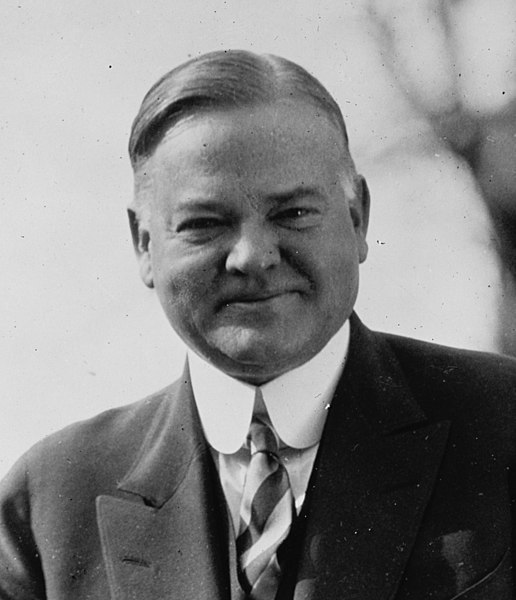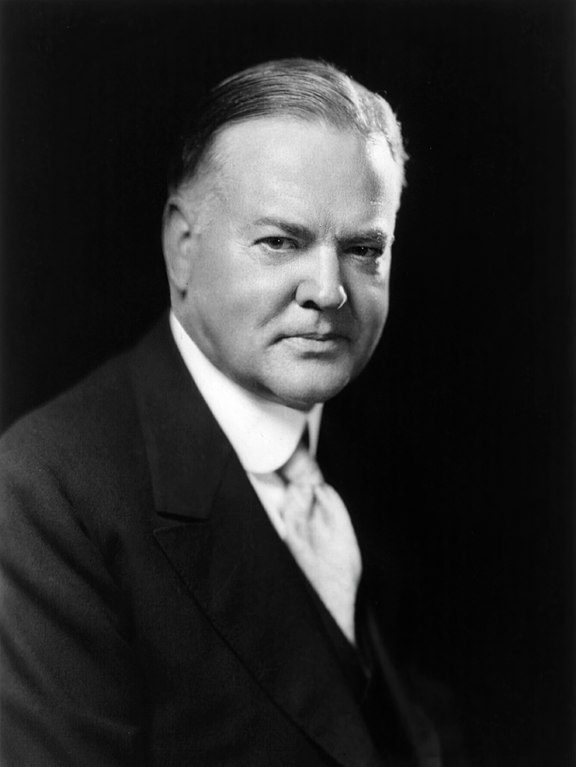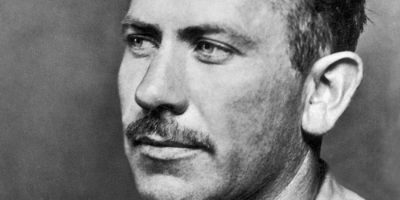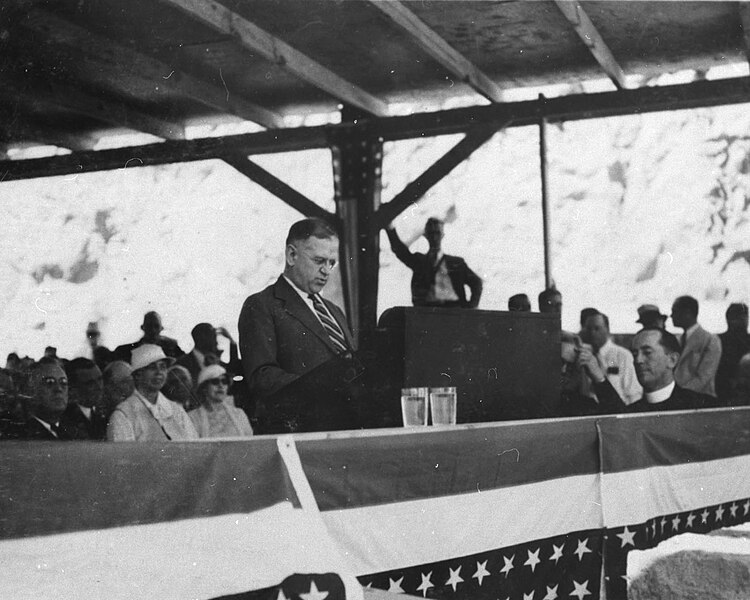15 Things to Know about Herbert Hoover
Herbert Hoover is a name that may be familiar to many. But how much do you really know about the 31st President of the United States? The tumultuous period of American history, encompassing the stock market crash of 1929 and the onset of the Great Depression happened during Hoover’s tenure in the White House. But there is much more to Hoover than his presidency alone. From his humanitarian efforts during World War I to his remarkable success as a mining engineer and businessman, Herbert Hoover led a fascinating and multifaceted life that is worth exploring in greater depth. In this article, we’ll delve into 15 things you need to know about Hoover. From his early years as an orphaned child to his later work as a champion of global relief efforts. Read on to discover more about the man behind the name whether you’re a history buff or simply curious about this influential figure.
1. Herbert Hoover’s work was influenced by Quakerism

Adam Smith, Public domain, via Wikimedia Commons
Herbert Hoover was born in 1874, in West Branch, Iowa. His parents were Quakers. Despite Hoover’s family not being wealthy, but they instilled in him a strong work ethic and a commitment to education. Hoover was a member of the Society of Friends the official name for the Quaker religious group. Quaker schools instilled hard work, self-discipline and service to others.
These values guided him throughout his career, both as a successful mining engineer and later as a humanitarian and politician. After World War I Hoover’s Quaker background played a role in his humanitarian work. Hoover helped to provide food and aid to millions of people in Europe who were suffering from the effects of the war, as head of the American Relief Administration. His upbringing and values were heavily influenced by Quakerism.
2. An Orphan Who Triumphed
He lost all his parents before he reached the age of 10. A heart attack killed his father while pneumonia was the cause of death for his mother. He was sent to live with his uncle in Oregon after the death of his parents, Hoover. Hoover went on to become a successful engineer and businessman before entering politics despite the tragedy he faced as a child. He served as the United States 31st President. The loss of his parents at a young age had an impact on his life and his approach to public service. Hoover developed a strong sense of self-reliance and a deep appreciation for education growing up as an orphan. Eventually became a successful mining engineer and businessman after working hard to support himself through school. he globe trotted and gained international recognition for his work.
Related Read: 10 Most Famous US Presidents.
3. Hoover Was an Engineer

Harris & Ewing, photographer, Public domain, via Wikimedia Commons
Herbert Hoover began his professional career as a mining engineer after completing his education at Stanford University in 1895. Hoover’s experience in mining engineering and business soon made him a highly sought-after consultant in the mining industry. His consulting firm’s clientele included the world’s largest mining companies. Business acumen and engineering expertise made him a successful businessman. Also, he invested in various mining companies. Eventually becoming a millionaire by the age of 40.
To help businesses and individuals affected by the economic downturn during the Great Depression Hoover advocated for government intervention in the economy, including public works projects and loan programs. In his role as President, Hoover’s successful businessman and engineer experience served him well, though his efforts were not entirely successful in ending the Great Depression.
4. He was the First Voice and Image in Television Broadcast in America

Internet Archive Book Images, No restrictions, via Wikimedia Commons
Herbert Hoover made history on April 7, 1927, when his voice and image were transmitted live in the first American demonstration of television. The use of telephone lines facilitated the transmission of Hoover’s image from the camera that captured it through a mechanical television system at the Bell Telephone Laboratories in New York City to the receiver in the nation’s capital. With this demonstration marking an important milestone in television technology development, it became easier to widely adopt this transformative medium. The voice transmitted said.
“Today we have, in a sense, the transmission of sight for the first time in the world’s history,” Hoover told a gathering of newspaper reporters and dignitaries in New York City from 200 miles away in Washington, D.C. “Human genius has now destroyed the impediment of distance.”
A mechanical television system as well as cameras and phone lines connecting them all together made it possible for Hoover’s picture and voice to be broadcast. The milestone achieved through this demonstration played an essential role in paving the way towards adopting television as a transformative medium.
5. ‘The Great Humanitarian’
Herbert Hoover, the renowned “Great Humanitarian,” spearheaded the endeavour to furnish food and alleviation to strife-torn Europe during the Great War. His charitable actions rescued millions of lives, a feat that earned him this well-deserved epithet. He led the charge to deliver sustenance and support to those in dire need across the globe as the chairperson of the American Relief Administration. The former President of the United States started his charitable initiatives well before entering politics. His altruistic nature led him to take on the responsibility of overseeing the Commission for Relief in Belgium during the First World War.
This commission provided food and other aid to the starving populace of occupied Belgium, where he was instrumental in saving countless lives. His dedication to the cause of humanity also saw him contribute towards the establishment of the United Nations and head multiple international relief organizations. His humanitarian efforts were recognized with numerous accolades and awards. He was also awarded Nobel Peace Prize in 1949.
Related Read: Who was the US President during World War II and Their Actions?
6. He was a President’ Man

See page for author, Public domain, via Wikimedia Commons
Prior to his presidency term Hoover served under different presidents including Woodrow Wilson and Warren G. Harding. Being proficient in both business and engineering fields while also being committed to public service earned him a great reputation. Having been involved with several presidential administrations prior to his own term as the president made Herbert Hoover a notable name within American politics. As part of the U.S., Hoover initiated his public service profession during World War I by heading up humanitarian aid campaigns in Europe’s Food management system.
After that, he acted as the Secretary of Commerce during the terms of Warren G. Harding’s presidency. In the time of Harding and Calvin Coolidge’s leadership, he significantly contributed to enhancing economic progress while also increasing overseas business relations. Hoover’s tenure serving within those roles assisted him with securing the GOP Presidential candidacy which led to his Presidency. The start of the Great Depression shortly after Hoover became president marred what would have been an otherwise successful tenure.
7. He Was Elected President in 1928

Herbert Hoover presidential campaign, CC BY-SA 4.0, via Wikimedia Commons
During Presidential Elections that took place back then in 1928, it was Herbert Hoover who became triumphant over his adversary named Al Smith after receiving massive backing from the public which accounted for approximately 58% while on other hand former could gather merely around 41%. Hoover highlighted his achievements as a thriving entrepreneur and former Secretary of Commerce while promoting the idea of ongoing economic expansion and welfare for citizens during the election campaign.
The Republican Party, thanks to relative stability and prosperity was popular during the 1920s. Hoover’s popularity and campaign strategy also helped him win the 1928 presidential election decisively. Small government and laissez-faire economics, as well as the power of individual initiative and hard work, were pushed by his administration.
15 Famous People from the 1920s.
8. Hoover Was Blamed for the Great Depression

Herbert E. French, Public domain, via Wikimedia Commons
Unfortunately for Hoover, his presidency was marked by the onset the Great Depression slump that desolated the US in the mid-1930s, a period referred to casually as the “Economic crisis of the early 20s.” There arose a broad conviction among the general population that the then-president, Herbert Hoover, bore a huge level of liability regarding the financial disaster that had happened to the country.
This opinion was turned into a generally acknowledged story, with numerous people and gatherings vociferously denouncing Hoover’s apparent misusing of the emergency and his organization’s strategies as a significant contributing variable to the country’s monetary ruin. The economic downturn and the high unemployment rate became his fault. To revive the economy he implemented the Smoot-Hawley Tariff and created the Reconstruction Finance Corporation, but the depression persisted and worsened.
9. “Hooverball”
Hooverball is a unique sport that was invented in the United States in the 1920s by President Herbert Hoover’s physician to help him stay active and fit. The game is played with a heavy medicine ball, which is similar in size and weight to a volleyball but much denser. On a tennis or volleyball court, four players split into two teams, striving to toss the ball over the net while ensuring that the opposing team doesn’t snatch it. To gain points, players must make the ball land out of bounds, fumble a catch, or allow the other team to nab it.
How to score in this game is by keeping your opponents from catching the ball you throw over the net. When the ball is thrown out of bounds or dropped or caught by the other team points are scored. The game is played with a weighty medicine ball, which is comparable in size and weight to a volleyball but a lot denser. Tossing the ball over the net and keeping the other group from getting it is the goal of the game. Points are scored when the ball is tossed too far out, dropped, or got by the other group.
10 Presidents and Politicians that Shaped the Cold War.
10. Hoover Could not Secure a Second Term

Series: Photographs of People, Places and Events, 1962 – 2004Collection: Hoover Presidential Library Audiovisual Collection, 1962 – 2004, Public domain, via Wikimedia Commons
In the 1932 US official political race, officeholder President Herbert Hoover was crushed by his Majority rule challenger, Franklin D. Roosevelt. The political race occurred during the Economic crisis of the early 20s, which had started in 1929, and Hoover was generally reprimanded for his treatment of the emergency. Economic relief and recovery, and the promise of a “New Deal” for the American people were Roosevelt’s campaign platform. He won in a landslide, taking 42 of the 48 states and earning 472 electoral votes to Hoover’s 59. The loss denoted the end of Hoover’s administration and the start of Roosevelt’s memorable presidency, during which he would sanction financial and social changes. Hoover’s administration was broadly viewed as a disappointment.
11. Do Not Hover Around Hoover Dam
Hoover Dam was dedicated in a well-attended ceremony but Herbert Hoover. the man the dam is named after was not invited. His handling of the Great Depression was a blot on Hoover’s presidency. The project received his backing when he served as the Secretary of Commerce. He signed the Boulder Canyon Project Act, which authorized the construction of the Hoover Dam during his presidency. Millions of Americans still use the dam today for electricity and water.
It is possible that the decision not to invite him was politically motivated or a result of personal animosity between Hoover and other officials involved in the dedication. The man who had played such an instrumental role in the dam’s creation was not present to see its completion, regardless of the reason, it is a curious historical footnote.
Related Read: Top 10 Amazing Facts about the Hoover Dam.
12. He Was a Talented Writer
Herbert Hoover was not only a renowned politician but also a talented writer. Throughout his life, Hoover authored several books, articles, and essays, showcasing his exceptional literary skills. He wrote extensively about his travels and experiences in various countries as a young mining engineer. This feat earned him recognition as an expert on international mining practices. He penned works on American economic policies, international relations and even the history of the United States later in his life.
Memoirs chronicling his life from childhood to the presidency are his most famous literary contribution. “American Individualism” and “The Challenge to Liberty” were authored by him. His writings reflected his beliefs in individualism and self-reliance. Hoover was a formidable communicator and a respected author with the ability to convey complex ideas with clarity and precision.
Also Read: 10 Most Famous Authors of All Time.
13. He Was an Advocate for Conservation
Hoover was an advocate for conservation. He took several measures to protect and conserve the environment during his presidency. Air Commerce Act of 1926, which regulated air traffic and aimed to reduce air pollution was appended by him. The Grand Teton National Park was established after he signed the National Park Service legislation. The conservation movement in general enjoyed Hoover’s support.
Boone and Crockett Club, which was founded by Theodore Roosevelt and advocated for the preservation of wildlife and natural resources had him as a member. During Hoover’s presidency, the importance of conservation and environmental protection was recognized. Consequently, action was taken to preserve the natural resources of the United States.
14. He Was a Philanthropist
Hoover contributed millions of dollars to charitable causes throughout his life. Providing food relief to European countries that were devastated by the conflict during World War I. Even after his presidency, he continued to be involved in philanthropy and established the Hoover Institution on War, Revolution, and Peace at Stanford University in 1919. Today, the think tank is recognized as one of the leading on matters of international relations and public policy.
Hoover Presidential Library and Museum in West Branch, Iowa which houses his papers and other materials related to his life and career point to his philanthropy. Education, public health and conservation were some of the other causes that Hoover supported throughout his life. Hoover’s philanthropic work had a significant impact on improving countless lives both within the United States and around the world.
Top 10 Facts About the Star Spangled Banner.
15. A Man of Integrity and Honesty
Herbert Hoover, a man of unfaltering standards, was generally regarded for his insight, capability and solid hard-working attitude. His trustworthiness and genuineness were amazing signs, and he never floundered from them even notwithstanding resistance or circumstance. Regardless of confronting various difficulties as president during the Economic crisis of the early 1930s, Hoover stayed unfaltering in his convictions and kept on making progress toward the improvement of his country. His moral compass was clear in his own life as well as in his expert undertakings. He couldn’t get the country out of the Great Depression regardless of his earnest attempts. After leaving office he continued to be active in public life, He served as an adviser to several presidents and worked on various humanitarian causes.
In American history, Herbert Hoover is a significant figure. He faced numerous challenges on his journey to becoming the 31st President of the US, experiencing both success and adversity. It is important not to overlook his charitable efforts and commitment to public service despite the economic crisis of the mid-1920s that marred his administration. His legacy continues to influence both America and the world. By examining both his accomplishments and failures, we can gain valuable insights from Hoover’s experiences. He remains an important part of American history that should not be forgotten regardless of our opinions on his policies.
Planning a trip to Paris ? Get ready !
These are Amazon’s best-selling travel products that you may need for coming to Paris.
Bookstore
- The best travel book : Rick Steves – Paris 2023 – Learn more here
- Fodor’s Paris 2024 – Learn more here
Travel Gear
- Venture Pal Lightweight Backpack – Learn more here
- Samsonite Winfield 2 28″ Luggage – Learn more here
- Swig Savvy’s Stainless Steel Insulated Water Bottle – Learn more here
Check Amazon’s best-seller list for the most popular travel accessories. We sometimes read this list just to find out what new travel products people are buying.












